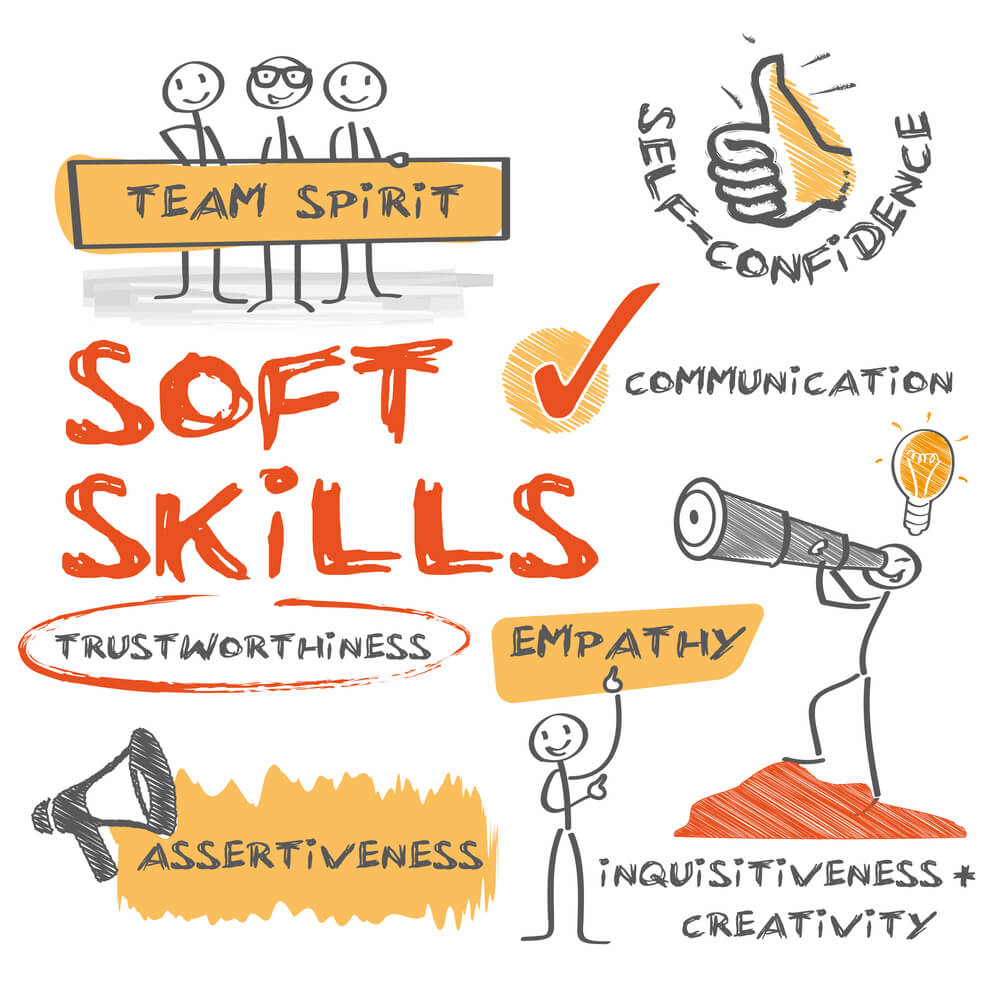Benefits of Empathy in the Workplace & How to Cultivate It
The importance of empathy in the workplace cannot be overstated. An empathic workplace ensures that all employees within an organization are heard, seen, and treated as equals.
It’s not just about the employees, though—cultivating empathy at work has far-reaching organizational benefits. For example, when everyone has a voice, diverse perspectives and the innovative solutions they create are more likely to shine.
In a past episode of the Team Building Saves the World podcast, we sat down with Christie Turley and Robyn L. Garret to discuss the importance of empathic leadership and how team building can help boost empathy in the workplace.
According to Christie Turley, people are not quitting companies, they’re quitting their bosses.
“Most CEOs think they’re really empathetic—86% of them, in fact. But then when you ask the employees, only 49% actually would agree that the CEO and the leadership are empathetic,” commented Christie.
In this article, we’ll dive deeper into why empathy is important in the workplace. We’ll also share some ideas on how to improve empathy in the workplace and among your company’s leaders.
What Is Empathic Leadership?
Empathic leadership is based on the ability to understand what others need while being aware of their thoughts and feelings. Strong empathy skills represent one of many vital leadership competencies. Still, empathy is often ignored as a performance indicator.
We’re not just talking about a single leadership style, either. Empathy is an essential element of many people-oriented leadership styles. It allows leaders to influence people and build connections that lead to a deeper understanding of others.
Empathic leadership shares several traits with conscious leadership principles. Being self-aware and creating a culture of “we” rather than “me” is vital to becoming a genuinely empathetic leader.
Benefits of Empathetic Leadership
Leaders who show empathy often express compassion toward others and strive to create a positive working environment. Employees feel more valued and motivated toward a common goal in an empathic workplace. This can motivate them to be more productive in their efforts to achieve the said goal.
Empathic leadership can also boost productivity. When employees have a clear understanding of what the goal is and know that the team will work together toward achieving it, they work more efficiently.
In contrast, without that empathy and understanding, you might have an employee who would be too afraid to share an idea that could be the next big thing for your business.
Examples of Empathy in the Workplace
Empathy can sometimes feel like an abstract concept. You want to be more empathetic. You know you appreciate empathy personally. But what does it look like?
Here are some empathy examples in the workplace to make this concept more tangible:
- Active Listening: When a team member expresses ideas, concerns, or questions in a meeting, empathetic leaders practice active listening. They don’t interrupt, they acknowledge the team member’s contributions (even if they disagree), and they respond in a kind and compassionate manner.
- Recognizing Burnout: Empathetic leaders recognize the risks and realities of employee burnout, and they take steps to address it. They work with employees who need to recover from burnout and regularly make time for team building activities as proactive burnout prevention measures.
- Celebrating Successes: Acknowledging and celebrating successful projects and personal accomplishments allows empathetic leaders to show their team members that they care about each person.
This list could keep going for a while, but you get the idea. Other examples of empathy at work include regular check-ins, compassionate feedback, and accommodating different work styles.
If you’re struggling to think of unique situations, a good rule of thumb is to apply the golden rule: treat others as you want to be treated.
What Happens When You Don’t Have Empathy in the Workplace?
We’ll look at the benefits of empathy in a moment, but first, let’s examine what happens without empathy at work.
The lack of empathy at the workplace can have a direct impact on your bottom line. Employees who are not motivated and supported by the leadership often lack the will to go the extra mile.
Team members might also start looking to change jobs and move to a workplace where they feel more valued and appreciated.
Why Is Empathy in the Workplace Important?
Empathy is just one of the soft skills that can’t be ignored anymore. In our podcast, Robyn explained that it’s important to help people understand that you genuinely care about their well-being.
“If you can help those people understand that you really care and you can back it up with your actions, then they’ll start to see you as a more empathic leader.”
Below is a list of some of the most important reasons why workplaces built on empathy thrive.
Empathetic Leaders Produce Better Results
The Center for Creative Leadership examined data from over 6000 managers in 38 countries to determine the influence of empathy on a manager’s performance at work. They found that empathy in the workplace is positively connected to a manager’s job performance.
Empathic leaders are also seen as better performers in their work than those who do not practice empathy.
Empathy Improves Cultural Awareness
Encouraging empathy in the workplace leads to stronger cultural awareness. Most workplaces have employees from various age groups, ethnicities, and cultural backgrounds. By creating a space where employees feel safe enough to share their thoughts and ideas freely, leaders can improve cultural awareness and benefit from diversity.
This is especially important if your company hires people from around the world. When your leaders invest time to understand other cultures, employees will in turn take those same steps. This ensures better communication and understanding with clients and customers.
“Your customer doesn’t want to buy from you if you’re inauthentic. They can tell if your workforce is unhappy, and that comes through. Those are the people who are closest to your customers,” commented Robyn.
Empathy Boosts Innovative Thinking
Empathic leaders cultivate a culture of collaboration and innovation. Employees are more likely to share new ideas with their employers when they believe that they will be heard and acknowledged for their contributions.
At the top of the company structure, leaders may not be aware of issues occurring lower in the organizational hierarchy. Being empathic and inviting honesty helps ensure that employees are comfortable voicing their opinions and new ideas.
If you’re not modeling empathic leadership, your employees won’t either. “If good leadership is not being modeled from the top, if empathy isn’t being modeled from the top, then people don’t know what it looks like. They don’t know. They don’t know how to model it themselves,” Christie explained.
How to Improve Empathy in the Workplace
You can improve your company culture through your leaders and with empathy activities. For workplaces with multiple large teams, this might look like a large-scale training initiative, and for smaller companies, it might involve some new programs.
Either way, one of the best ways to improve empathy in the workplace is by ensuring your leaders have key empathy skills. Here are the top three skills they need to have to foster an empathic workplace culture and, in turn, happier employees.
1 Self-Awareness
Empathic leaders must have a deep knowledge of their strengths and weaknesses. This level of self-awareness helps them identify what aspects they need to develop and emphasize.
For most people, empathy is a learned skill rather than something that comes naturally. It’s most often developed through working to understand others and purposefully learning more about the struggles faced by those around us.
Leaders and employees alike should cultivate self-awareness as part of their efforts to build trust and understanding in the workplace. Fun programs like TeamBonding’s Squad Game can make this easier. In Squad Game, team members have to dig deep and think outside of the box while building solid working relationships with their coworkers.
2 Self-Control
In high-stress situations, empathetic leaders need self-control over their feelings and emotions. They should avoid letting a negative situation get the better of them. Lashing out is one of the easiest ways to tank your team’s morale. It also ensures that someone will avoid coming to you with a concern in the future.
Self-control is a skill developed when one understands their personality, leadership style, and how to have productive interactions with coworkers.
TeamBonding’s DISC Training is a good choice for strengthening self-control as an empathy skill. This activity aims to help individuals discover their personality styles and deepen their understanding of how they and others respond to each other.
3. Direct Communication
Employees and coworkers can’t read your mind. If you don’t communicate your expectations directly and clearly, they will do things that upset you at no fault of their own. Communicating what you expect and what you are looking for ensures that the work gets done correctly.
This is not a one-way street, though. Empathetic leaders need to be able to lend an ear to others. Listening and acknowledging that you have heard them is an effective way to cultivate respect and empathy in the workplace. From there, you must respect the boundaries and expectations that are communicated to you.
TeamBonding’s Leadership Stories is an event that encourages team members to develop their leadership and communication skills. Teams have to work through a series of challenges to earn game points by coming up with a creative solution.
Deciding on the correct solution requires effective communication within the team. The goal of this event is to make each member of the team feel heard and understood.
Cultivate Empathy in the Workplace With TeamBonding
An empathic workplace is essential if you want your business to stay at the top of its game. It’s all about understanding what your employees need and making sure they feel safe sharing concerns.
Having empathy for your employees creates understanding and better collaboration in the workplace. This leads to the more effective execution of business strategies and higher productivity, which boosts your bottom line.
Team building exercises in the workplace make it easy to start improving your company culture. At TeamBonding, we’ve woven empathy activities into workplace programs to help your team members connect, grow, and create memories together.
These exercises allow you and your employees to discover more about yourselves and how you work with others in a safe space. Check out the full catalog of TeamBonding activities to find ideas on how to bond more with your team and strengthen connections.
Want some help fostering empathy in the workplace? Contact TeamBonding today! We’ll help you find the perfect events—or create a custom one for you—so you can build a more empathic workplace.
Get more insights in our newsletter:
* every subscription supports charity!
Plays well with these activities.


 Unlock exclusive resources for better teams. Every subscription supports charity!
Unlock exclusive resources for better teams. Every subscription supports charity!
Create Your Free Account
Get exclusive access to new programs from the TeamBonding Lab, save your favorite ideas, and track your upcoming events.
Already have an account? Login











